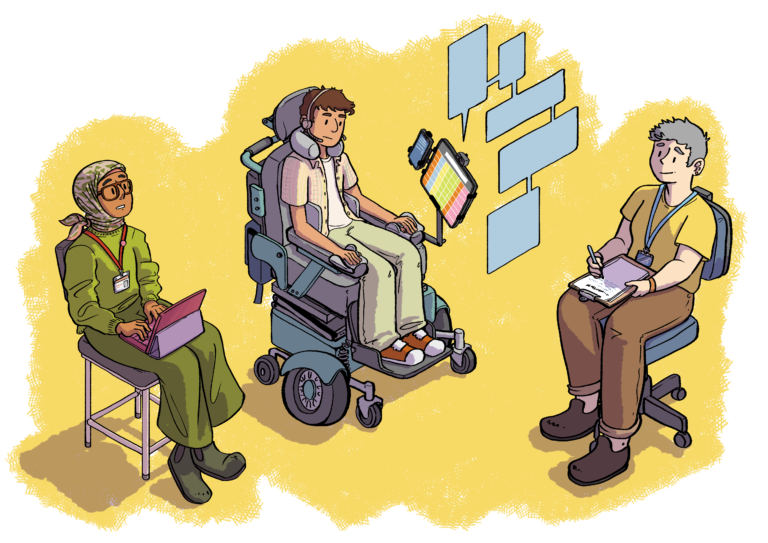Responsibilities as an NDIS service provider

Understanding your responsibilities when working with disabled young people.
As an NDIS service provider or worker, understanding and meeting your responsibilities is essential to providing high-quality, safe and empowering support for disabled young people.
Responsibilities as an NDIS service provider
You must:
All NDIS service providers and workers must follow the NDIS Code of Conduct. This means you must:
-
Respect and uphold disabled young people’s rights. This includes their right to privacy, freedom of expression, and self-determination.
- Respect disabled young people’s right to speak up and participate in decision making.
-
Provide supports and services safely, with care and skill.
-
Take action to prevent and respond to violence, abuse, neglect, and exploitation.
-
Listen to all concerns and complaints and take them seriously.
- Act with integrity, honesty, and transparency.
To learn more, visit our NDIS Code of Conduct webpage.
Registered NDIS providers must meet the NDIS Practice Standards, which set out what safe and high-quality support should look like.
They explain what registered NDIS providers must do to meet the needs of disabled people, including children and young people.
If you work with children or young people under 18, you must follow child safe principles. This includes:
-
Creating safe environments
-
Empowering children and young people
-
Taking a zero-tolerance approach to abuse
National Principles for Child Safe Organisations
The National Principles for Child Safe Organisations guide organisations to create and maintain safe environments for children and young people. The principles are not mandatory but implementing them shows a strong commitment to child safety and wellbeing.
State and territory child safe requirements
Organisations that work with children and young people must meet existing child safe requirements in your state or territory, including child safe standards that are based on the National Principles, and background check schemes for those working or volunteering with children.
Links to state and territory child safe requirements and resources are available on the Australian Human Rights Commission’s website.
Working with Children Check
Providers and workers supporting children must have a Working with Children Check under state and territory laws. This helps protect children from harm.
NDIS Worker Screening Check
Workers in some roles also need an NDIS Worker Screening Check when working for a registered NDIS provider.
This assesses if someone may be a risk to disabled people when working with them.
Professional registration
Providers or workers may also need to register with a relevant professional body. For example, a psychologist or physiotherapist must be registered with the Australian Health Practitioner Regulation Agency (AHPRA).
NDIS service providers must follow Australian Consumer Law and treat disabled young people fairly. Learn more about your legal requirements on the NDIS website.
There are some incidents that you must report.
A ‘reportable incident’ is something that has happened—or is said to have happened—while providing NDIS supports or services.
Registered NDIS providers must notify the NDIS Commission of all reportable incidents. This includes incidents you have recorded and responded to using your own incident management system.
For a list of reportable incidents and instructions on notifying the NDIS Commission, visit the NDIS Commission’s Reportable incidents webpage.
Mandatory reporting of child abuse and neglect
Some people supporting disabled young people are legally required to report if they believe a child is being abused or neglected.
Visit the Australian Institute of Family Studies’ Mandatory reporting webpage for more information about the requirements in your state or territory.
Resources
Check out the webpages below for more information on how to meet your responsibilities as an NDIS service provider supporting disabled young people.